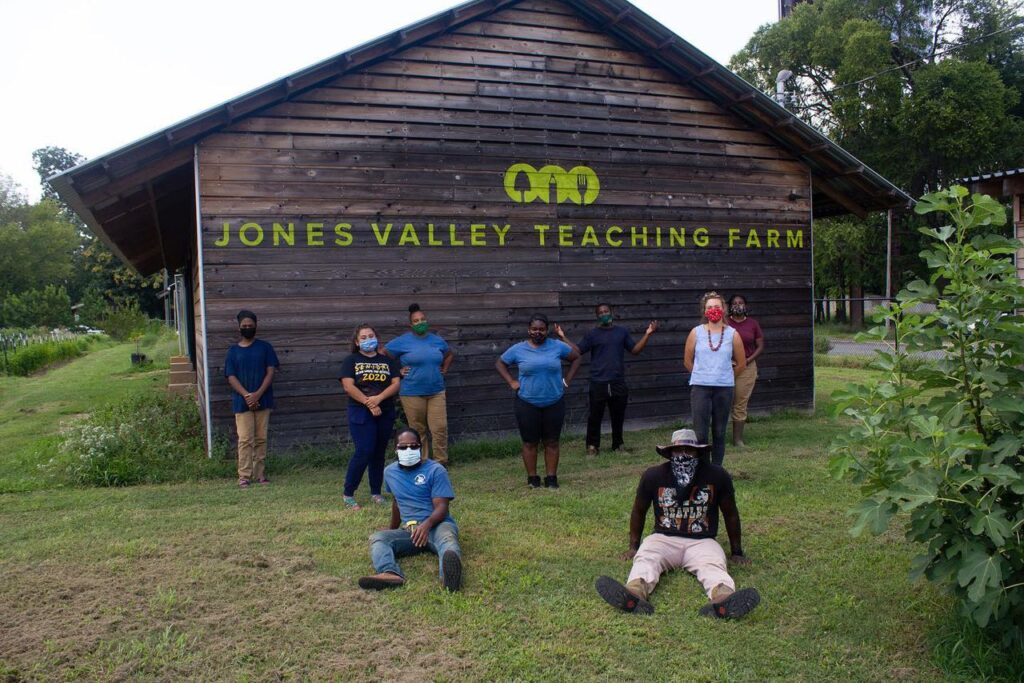By: Mohamed Jalloh

Alabama students recently returned back to school and even amid the first day of classes, high school seniors are already pondering the big questions about what their futures may hold. What should I do after graduation? Do I go straight into the workforce? Is college a viable option for me?
For this year’s seniors, these questions are even more daunting. Their academic progress was disrupted by the COVID-19 pandemic, causing many to miss out on important moments such as football games and dances, but also milestones such as career exploration and planning opportunities that are crucial to making informed choices for life after high school.
In my role as the Woodlawn High School Farm & Internship Manager with Jones Valley Teaching Farm, I help students discover their own answers to these questions — and it was not that long ago I was discovering these answers for myself.
In 2011, my mother and I moved to Birmingham from Guinea, a small French-speaking country in West Africa. My freshman year was a struggle, starting high school in a new country and speaking a new language, all while trying to figure out my plans for the future.
That started to change when I joined the NAF Academy of Business and Finance at Woodlawn High School. As a NAF student, I was taught by exceptional educators in a small learning community that connected my education to real-world career options.
Through NAF, I toured companies like Regions Bank, and shadowed a financial accountant at Birmingham Waterworks. While participating in a mock interview with the local Rotary Club, I met a supportive mentor who has gone on to play a major role in my life. All of these experiences helped me identify and harness my strengths, uncover the kind of work I enjoyed, and decide what I wanted to do once I finished high school.
Additionally, my NAF experience opened many doors for me, including the opportunity to give back to my community. I now guide students to explore new possibilities for their future. Although they come to me to learn about the farming and agricultural industry, I also connect students to key resources that include resume writing, applying for colleges, completing the FAFSA, or creating a plan for their future. I want the next generation of leaders to have a world of opportunity in front of them and feel ready to embrace the possibilities, no matter where their paths may lead.
Career and technical education organizations like NAF are critical to our students’ futures and our economy as a whole.
NAF students build skills through experiences and develop professional relationships that are fundamental in any career. During the 2021-2022 school year, nearly 80 percent of students indicated their work-based learning experiences helped them build skills that would be useful in a future career.
In Birmingham, the U.S. Department of Labor recently awarded a $4.2 million grant supporting work-based learning, apprenticeships, and training. This is a step in the right direction, but for Alabama to remain competitive, larger long-term investments need to be made.
Tennessee is building its workforce with a $50 million vocational education grant program and Florida is making an $89 million investment in career technical education. Major investments like these give more students experience and connections that can lead to family-supporting jobs, create upward mobility, and help communities develop stronger economies by spurring job creation. Alabama needs to follow the example of our neighbors and invest in our economic future.
Starting this month, I will help another group of seniors wrestle with the same big questions about what they want to do after high school. By giving them access to tools, resources, and experiences, they will have a greater likelihood for success. Their future, and the future of our state, depends on how we can help them find the answers.
Mohamed Jalloh is the Woodlawn High School Farm & Internship Manager for Jones Valley Teaching Farm.


